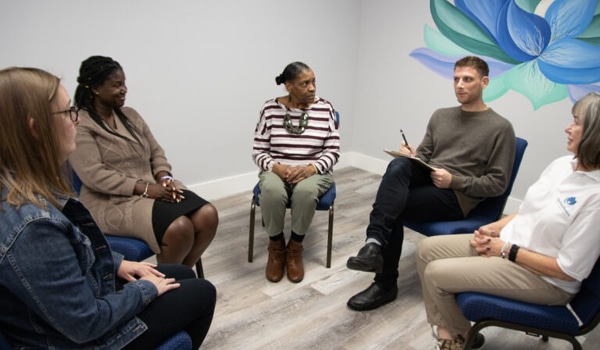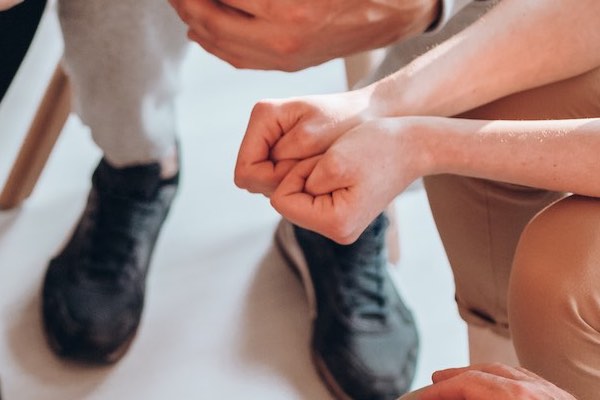At The Sylvia Brafman Mental Health Center in South Florida, we specialize in treating adult mental health conditions, from depression to personality disorders and everything in between. We offer convenient accommodations for out-of-state patients traveling for our comprehensive outpatient mental health services. Continue reading for details on how to pay for intensive outpatient programs in South Florida.

How to Pay for Intensive Outpatient Mental Health Program in South Florida
What is an Intensive Outpatient Mental Health Program?
An Intensive Outpatient Program (IOP) for mental health provides structured, comprehensive treatment while allowing you to maintain many of your daily routines. Designed for those who need more support than traditional outpatient mental health rehabilitation but do not require inpatient care, IOPs offer a flexible solution that balances intensive therapy with personal and family life.
These intensive therapy programs typically involve multiple therapy sessions per week, including individual, group, and family counseling, to address various mental health issues such as depression, anxiety, and behavioral disorders. Participating in an intensive outpatient program allows you to receive high-quality, evidence-based care without the need to stay overnight at a facility. This approach helps patients apply the skills learned in therapy to real-life situations, promoting sustained improvement and resilience. If you or a loved one are seeking a comprehensive yet flexible treatment option, these structured mental health programs might be the perfect fit. Contact us to learn more about The Sylvia Brafman Mental Health Center’s comprehensive outpatient services in South Florida.

Private Intensive Outpatient Mental Health Program in South Florida That Offers Payment Options
At The Sylvia Brafman Mental Health Center, we understand the crucial need for affordable addiction recovery and mental health treatment. That’s why we offer flexible rehab payment plans for IOP treatment in South Florida. Financial constraints should never hinder anyone from accessing the necessary care. We’re dedicated to working with you to find budget-friendly ways to cover rehab costs.
If you’re considering supportive outpatient care for eating disorders, depression, or another mental health condition and need information on how to pay for mental health IOP, call 877-958-9212. Our patient advocates are dedicated to helping you access the care you deserve, guiding you through our fee structure and payment process with compassion and understanding.
- The Sylvia Brafman Mental Health Center: 7710 NW 71ST CT, Tamarac, Florida, 33321

Are you ready to take the first step towards better mental health? At The Sylvia Brafman Mental Health Treatment Center in Fort Lauderdale, Florida, our team of dedicated professionals is ready to guide you. We offer a variety of therapy programs and rehab treatments, each uniquely designed to meet your needs. Our success stories speak volumes about our expertise and dedication. So don’t wait, reach out to us today! Either give us a call or fill out the form below to request a callback.
"*" indicates required fields

Does Insurance Pay for Mental Health Disorder IOP?
Many insurance providers and their plans offer coverage for intensive psychiatric outpatient care. However, coverage details depend on your specific policy and mental health needs, meaning coverage can significantly vary from one plan to the next. Reviewing your policy or calling 877-958-9212 to understand what’s included is essential.
Our knowledgeable patient advocates can provide details about coverage limits, out-of-pocket costs, required prior authorization procedures, and more. Don’t lose hope if your insurance doesn’t fully cover behavioral health intensive treatment. Many treatment centers, including The Sylvia Brafman Mental Health Center, offer alternative financing for rehab, including affordable monthly rehab payment plans. Openly discuss your situation with our patient advocates, who have experience navigating insurance jargon and can assist you in paying for rehab without insurance. Investing in your mental health is essential for your overall well-being, and numerous resources are available to help you obtain the care you need.

Ways To Pay for an Intensive Outpatient Program If You Don’t Have Insurance
If you don’t have insurance coverage, there are various avenues you can explore for funding addiction treatment or intensive outpatient behavioral therapy. Options such as the suggestions briefly outlined below can provide financial support for intensive outpatient programs. For more information and guidance, call 877-958-9212.

How To Get into an Intensive Outpatient Mental Health Program
Starting intensive outpatient mental health program involves several important steps, and efficiently navigating this process is essential to ensure a smooth transition into an intensive outpatient program that suits your needs and budget. Here are some initial steps to help you get started:

How Much Does an Intensive Outpatient Program for Mental Health Cost Without Insurance?
Navigating the cost of an Intensive Outpatient Program (IOP) for mental health without insurance can vary widely depending on factors like location, program duration, and specific services offered. Generally, the cost can range from several hundred to several thousand dollars per month.
For instance, programs in urban areas or those offering specialized therapies may be on the higher end of the spectrum. On the other hand, programs in more rural areas or with fewer amenities might be more affordable. Researching and comparing different programs is essential to find one that fits your budget and meets your treatment needs. Call 877-958-9212 for a free assessment to determine the most appropriate level of care – would you benefit from dual diagnosis outpatient programs or the partial hospitalization alternatives at The Sylvia Brafman Mental Health Center? We can answer that question and more, including details on the pricing structure and available financial support to ensure you can access the care you need for your mental health journey.
Lowering the Cost of Your Mental Health IOP Treatment
Considering alternatives to an Intensive Outpatient Program (IOP) can significantly reduce mental health treatment costs. Explore programs that provide structured therapy and support without the time commitment of an IOP. For example, outpatient addiction treatment programs or support groups like Alcoholics Anonymous (AA) or Narcotics Anonymous (NA) can provide low-cost or free alternatives.
The Sylvia Brafman Mental Health Center specializes in providing affordable treatment options that maintain high quality and effectiveness. Our patient advocates are dedicated to evaluating individual needs and crafting personalized treatment plans tailored to your financial situation and treatment goals. Whether you’re exploring residential treatment or considering mental health IOP or Partial Hospitalization Programs (PHP), we invite you to reach out to us at 877-958-9212 to confidentially discuss how we can be of assistance.



